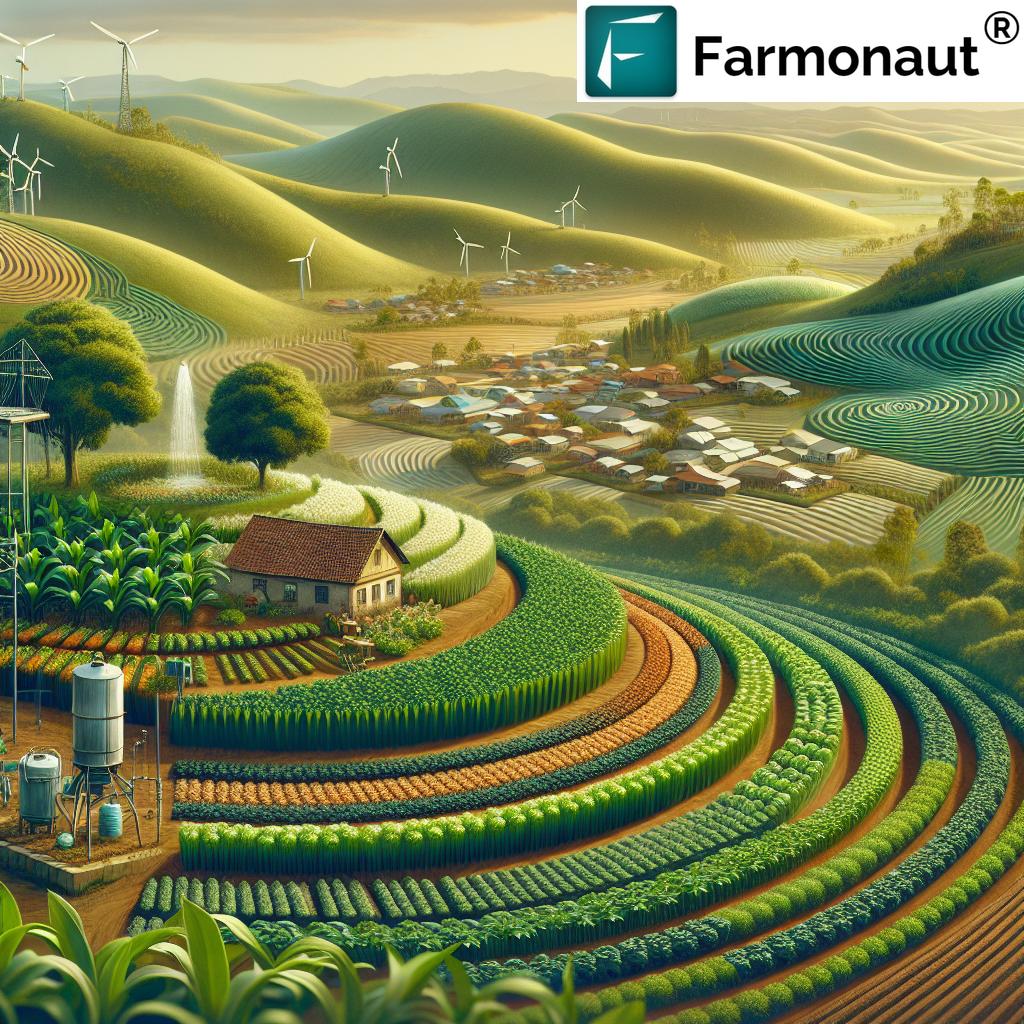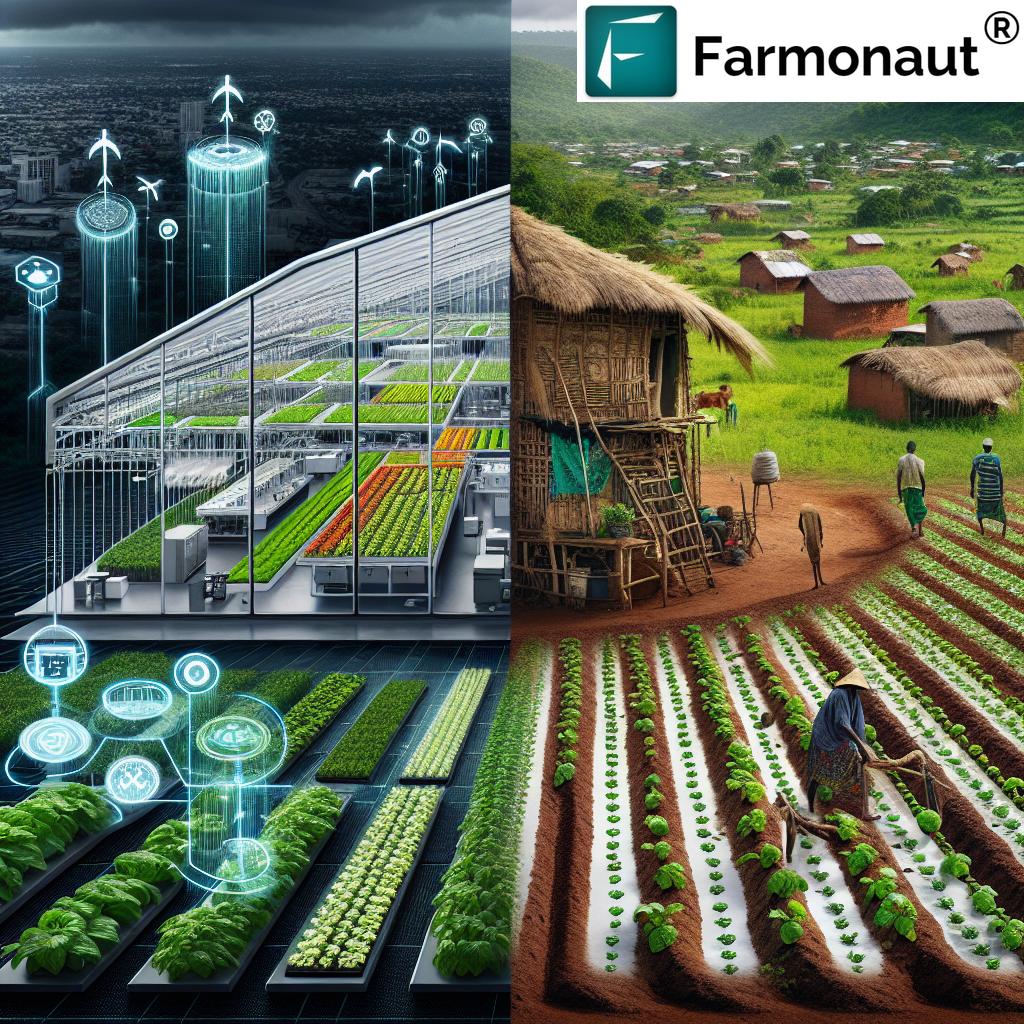Sustainable Agriculture Revolution: Boosting Global Food Security from Tampa to Rural Villages
“A major foundation aims to increase participation in sustainable agriculture by 15% in developing countries.”
In a groundbreaking announcement from Tampa, FL, The Mosaic Company Foundation has unveiled its transformation into The Mosaic Company Foundation for Sustainable Food Systems. This rebranding marks a significant shift in focus towards advancing sustainable agricultural practices and global food security solutions on an unprecedented scale. As we navigate the challenges of feeding a growing global population, projected to exceed 9 billion by 2050, the foundation’s initiative comes at a crucial time.
The foundation’s renewed mission aligns perfectly with the urgent need for resilient and sustainable food systems worldwide. By expanding its efforts across three continents – North America, South America, and Asia – the foundation is poised to make a lasting impact on agricultural communities, from the heartland of the United States to the rural villages of India and Brazil.
The Global Impact of Sustainable Agriculture
Sustainable agriculture practices are at the forefront of addressing food security challenges worldwide. These practices not only aim to increase crop yields but also focus on preserving natural resources, improving soil health, and ensuring the long-term viability of farming communities. The Mosaic Company Foundation for Sustainable Food Systems is championing this cause through strategic partnerships and innovative approaches.

Let’s explore how this initiative is reshaping the agricultural landscape:
- United States: Focusing on 4R Nutrient Stewardship to optimize fertilizer use and minimize environmental impact.
- India: Expanding the Krishi Jyoti program to empower smallholder farmers with modern agricultural techniques.
- Brazil: Scaling up The Villages Project to transform rural communities through sustainable farming practices.
These efforts collectively contribute to a more resilient and productive global food system, addressing the critical need for sustainable food production in both developed and developing nations.
Innovative Technologies Driving Agricultural Transformation
At the heart of this agricultural revolution are cutting-edge technologies that are making precision farming more accessible and affordable. Companies like Farmonaut are at the forefront of this transformation, offering satellite-based farm management solutions that are changing the game for farmers worldwide.
Farmonaut’s platform integrates satellite imagery, artificial intelligence, and machine learning to provide farmers with real-time insights into crop health, soil moisture levels, and weather patterns. This technology enables farmers to make data-driven decisions, optimizing resource use and maximizing yields.
Key features of Farmonaut’s technology include:
- Satellite-based crop health monitoring
- AI-driven personalized farm advisory system
- Blockchain-based product traceability
- Fleet and resource management tools
- Carbon footprint tracking
These innovations are not just improving farm productivity; they’re also promoting sustainability by helping farmers reduce their environmental impact and adapt to changing climate conditions.
Empowering Rural Communities Through Sustainable Practices
The foundation’s focus on rural community transformation is a key component of its strategy to enhance global food security. By providing farmers with the tools, knowledge, and resources they need to adopt sustainable practices, the initiative is helping to build more resilient and prosperous agricultural communities.
“Sustainable agriculture initiatives are expanding across three continents: North America, South America, and Asia.”
In India, the Krishi Jyoti program, led by the S M Sehgal Foundation, exemplifies this approach. The program works closely with smallholder farmers to introduce:
- Water-efficient irrigation techniques
- Integrated pest management strategies
- Soil health improvement techniques
- Crop diversification methods
These interventions not only boost agricultural productivity but also enhance the overall quality of life in rural villages by improving income stability and food security.
Similarly, in Brazil, The Villages Project is making significant strides in transforming rural communities. By focusing on:
- Sustainable land management practices
- Agroforestry systems
- Organic farming techniques
- Market access improvements for smallholder farmers
The project is not only enhancing food production but also preserving the rich biodiversity of Brazil’s agricultural regions.
Nutrient Stewardship: A Cornerstone of Sustainable Agriculture
In the United States, the foundation’s emphasis on 4R Nutrient Stewardship underscores the importance of efficient fertilizer use in sustainable agriculture. This approach focuses on applying the right source of nutrients, at the right rate, at the right time, and in the right place.
The benefits of proper nutrient stewardship include:
- Increased crop yields
- Reduced environmental impact
- Improved soil health
- Enhanced farm profitability
By promoting these practices, the foundation is helping U.S. farmers optimize their resource use while minimizing the ecological footprint of agriculture.
Explore Farmonaut’s API for advanced agricultural data
Global Sustainable Agriculture Impact Comparison
| Country/Region | Primary Sustainable Practice | Estimated Increase in Crop Yield (%) | Estimated Reduction in Water Usage (%) | Estimated Improvement in Soil Health (%) | Projected Increase in Farmer Participation (%) |
|---|---|---|---|---|---|
| United States | 4R Nutrient Stewardship | 20 | 15 | 25 | 10 |
| India | Integrated Pest Management | 25 | 30 | 20 | 15 |
| Brazil | Agroforestry Systems | 18 | 25 | 30 | 12 |
This comparison illustrates the significant impact of sustainable agriculture practices across different regions. It’s clear that these approaches not only boost crop yields but also contribute to water conservation and soil health improvement.
Harnessing Technology for Precision Agriculture
The integration of advanced technologies is revolutionizing farming practices worldwide. Farmonaut’s satellite-based solutions are at the forefront of this transformation, offering farmers unprecedented insights into their fields.
Key benefits of precision agriculture include:
- Optimized resource allocation
- Early detection of crop stress and diseases
- Improved yield forecasting
- Reduced environmental impact
By leveraging these technologies, farmers can make more informed decisions, leading to increased productivity and sustainability.
Access Farmonaut’s API Developer Docs for integration guidance
Building Resilient Food Systems for the Future
The foundation’s commitment to equipping the next generation of farmers with tools for resilient and sustainable agriculture is crucial for long-term food security. This involves:
- Educational programs on sustainable farming techniques
- Access to innovative agricultural technologies
- Support for young farmers entering the industry
- Promotion of climate-smart agriculture practices
By investing in these areas, the foundation is helping to create a more sustainable and secure food future for generations to come.

The Role of Collaboration in Advancing Sustainable Agriculture
The success of these initiatives hinges on strong partnerships between various stakeholders. The Mosaic Company Foundation for Sustainable Food Systems collaborates with:
- Local NGOs and community organizations
- Agricultural research institutions
- Government agencies
- Technology providers like Farmonaut
These collaborations ensure that sustainable agriculture practices are tailored to local contexts and can be effectively implemented on the ground.
Addressing Climate Change Through Sustainable Agriculture
Sustainable agriculture practices play a crucial role in mitigating and adapting to climate change. By promoting techniques that sequester carbon in the soil and reduce greenhouse gas emissions, these initiatives contribute to global climate action efforts.
Key climate-smart practices include:
- Conservation tillage
- Cover cropping
- Efficient irrigation systems
- Renewable energy use in farm operations
These practices not only help combat climate change but also enhance the resilience of agricultural systems to extreme weather events.
The Economic Impact of Sustainable Agriculture
Sustainable agriculture practices not only benefit the environment but also have significant economic advantages for farmers and rural communities. These include:
- Reduced input costs through efficient resource use
- Higher crop yields and quality
- Access to premium markets for sustainably produced goods
- Increased farm resilience to economic shocks
By adopting these practices, farmers can improve their livelihoods while contributing to the overall sustainability of the agricultural sector.
Leveraging Data for Smarter Farming Decisions
The role of data in modern agriculture cannot be overstated. Platforms like Farmonaut provide farmers with access to crucial information that can inform their decision-making processes. This includes:
- Real-time weather data
- Soil moisture and nutrient levels
- Crop health indicators
- Market trends and price forecasts
By harnessing this data, farmers can optimize their operations, reduce risks, and maximize profitability while adhering to sustainable practices.
The Future of Sustainable Agriculture
As we look to the future, the importance of sustainable agriculture in ensuring global food security will only grow. The initiatives led by The Mosaic Company Foundation for Sustainable Food Systems, coupled with technological innovations from companies like Farmonaut, are paving the way for a more resilient and productive agricultural sector.
Key areas of focus for the future include:
- Further integration of AI and machine learning in farm management
- Development of drought-resistant and climate-adaptive crop varieties
- Expansion of regenerative agriculture practices
- Strengthening of local food systems and supply chains
By continuing to invest in these areas, we can create a more sustainable and secure food future for generations to come.
Earn With Farmonaut Affiliate Program
Earn 20% recurring commission with Farmonaut’s affiliate program by sharing your promo code and helping farmers save 10%. Onboard 10 Elite farmers monthly to earn a minimum of $148,000 annually—start now and grow your income!
Learn more about the Farmonaut Affiliate Program
Farmonaut Subscriptions
Frequently Asked Questions
Q: What is sustainable agriculture?
A: Sustainable agriculture refers to farming practices that meet current food needs while preserving natural resources and ensuring the ability of future generations to meet their own needs. It involves techniques that protect soil health, conserve water, reduce chemical inputs, and promote biodiversity.
Q: How does precision agriculture contribute to sustainability?
A: Precision agriculture uses technology like satellite imagery and sensors to optimize resource use. This leads to reduced waste, lower environmental impact, and improved crop yields, all contributing to more sustainable farming practices.
Q: What role does Farmonaut play in sustainable agriculture?
A: Farmonaut provides satellite-based farm management solutions that help farmers make data-driven decisions. Their technology enables precise monitoring of crop health, soil conditions, and weather patterns, supporting more efficient and sustainable farming practices.
Q: How can farmers benefit from adopting sustainable practices?
A: Farmers can benefit through increased crop yields, reduced input costs, improved soil health, and access to premium markets for sustainably produced goods. Additionally, sustainable practices often lead to greater farm resilience against climate change and economic fluctuations.
Q: What is the 4R Nutrient Stewardship program?
A: The 4R Nutrient Stewardship program is an approach to fertilizer management that focuses on applying the Right source of nutrients at the Right rate, Right time, and in the Right place. This approach optimizes nutrient use efficiency, reducing waste and environmental impact while maximizing crop yields.
In conclusion, the sustainable agriculture revolution, spearheaded by initiatives like The Mosaic Company Foundation for Sustainable Food Systems and supported by innovative technologies from companies like Farmonaut, is transforming the global agricultural landscape. From Tampa to rural villages across the world, these efforts are boosting food security, improving farmer livelihoods, and promoting environmental stewardship. As we face the challenges of feeding a growing global population in a changing climate, the importance of sustainable agriculture practices cannot be overstated. By embracing these innovative approaches and technologies, we can build a more resilient, productive, and sustainable food system for generations to come.







